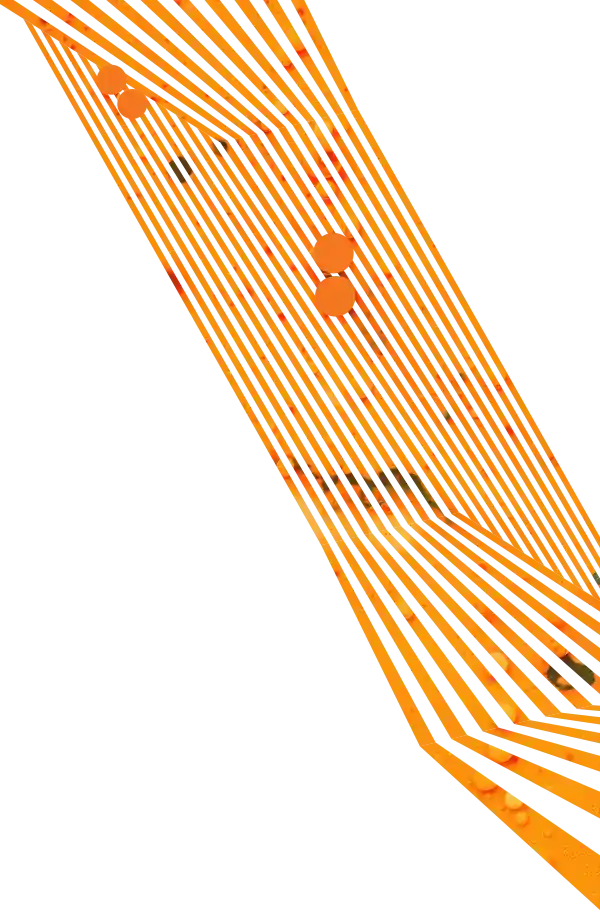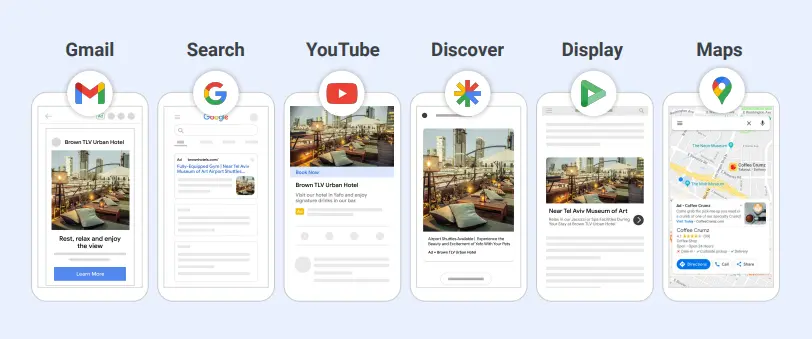
How to Calculate PPC ROI
Ready to maximize your digital advertising investments? Find out how to calculate three different ways to measure your success and adjust appropriately. …


In marketing, change is inevitable. The digital advertising landscape has shifted dramatically over time, and that ongoing evolution can cause marketers to fall behind if they’re not ready to adapt.
Fortunately, change can bring exiting new possibilities. That evolution includes a pair of promising PPC strategies – Performance Max (PMAX) and Demand Gen campaigns. Let’s break down how marketers have reached this point and how these campaigns can elevate your digital advertising efforts.
PPC began with humble beginnings in 1996, leveraging basic search ads and placing emphasis on ad clicks instead of conversions and leads. The advertising landscape has since changed as the need to build awareness and create demand through advertising became evident.
The resulting shift has forced PPC strategies to evolve to keep up with an increase in competition and advertising costs. Today, PPC strategies focus on creating and nurturing interest over time, usually across multiple channels and platforms. This approach has paved the way for a more effective funnel to conversions.
A user's journey into problem-solving doesn't begin at the buying stage. Advertisers need to invest time in raising awareness about the product and the pain points it addresses, as well as educating users on how the product or service can help before a conversion occurs. For example, Mailchimp demonstrates an understanding of their end user's pain points by offering solutions through multichannel marketing tips that help inspire customers to action.
The days of Google Adwords and ad campaigns that required daily manual bidding adjustments are long gone. In 2018, Google dropped "Adwords" to become Google Ads and set to grow beyond manual search campaigns. Now, campaigns across search, display, shopping, and YouTube have leaned into data-driven, automated campaign strategies, including:
More recent campaign types that have been introduced include the aforementioned PMAX and Demand Gen, also known as a discovery campaign. These campaigns are better at automating assets, like audiences and ad copy, to achieve campaign goals.

A PMAX campaign is a goal-based campaign that leverages Google's entire ad inventory (Search, Display, YouTube, Gmail, and more) with audience signals to optimize across multiple networks, making it ideal for advertisers with conversion-focused goals and larger budgets.
In contrast, a Demand Gen campaign focuses primarily on YouTube, Discovery, and Gmail, utilizing first-party data and YouTube user behavior to create personalized, visual ads aimed at driving awareness and engagement. PMAX is best suited for businesses seeking to maximize conversion volume across channels, while Demand Gen is more effective for building brand awareness or nurturing leads in visually-driven industries.
While the industry had hesitation in the beginning due to the heavy automation and lack of insights and accountability, Google has continued to improve these campaign features. Automated campaigns and are now seen as one of the best additions to your paid media strategy. If your business depends on lead generation goals and has elongated or complex sales cycles, these campaigns are especially great for nurturing your marketing and sales funnels.
By continuously enhancing the automation, targeting, and creative optimization features, PMAX campaigns have become more sophisticated, offering better optimization for bids and placements while lessening the manual workload for advertisers. Similarly to other Google responsive ad types, PMAX assembles and tests various creative assets (images, videos, text) to find the best-performing combinations.

Automated campaigns, like PMAX and Demand Gen, have helped shift the focus from short-term gains to long-term growth for advertisers and businesses to better serve users and optimize the customer journey.
There is an incredible competitive advantage gained by integrating these strategies that allow marketers to leverage comprehensive cross-channel targeting and machine learning to see higher conversion rates and improved ROI. Ancestry.com utilized a combination of Demand Gen tactics and Performance Max campaigns to increase brand awareness and conversions that resulted in a 20% increase in subscriptions.
As the digital marketing landscape continues to evolve, staying ahead means embracing innovative, data-driven strategies like Google Ads' Demand Gen and PMAX campaigns. These powerful tools offer unmatched opportunities for optimizing your PPC efforts, creating more well-rounded strategies and leading to increased ROI for advertisers. Start experimenting with these advanced campaigns today and unlock the potential to transform your marketing success.
The future of PPC is bright, and with the right strategies, your business can shine even brighter. At Aztek, we specialize in evolving your PPC strategies to meet the ever-changing digital landscape.
Our expert team leverages advanced tools and data-driven insights to optimize your campaigns for maximum ROI. Whether you’re looking to boost brand awareness, generate high-quality leads, or increase conversions, Aztek provides tailored solutions that align with your business goals. We stay ahead of industry trends to ensure your strategies are not just current but also future-proof, driving sustainable growth for your business.
Discover how we can transform your PPC campaigns and deliver measurable results. Reach out today for a consultation!
